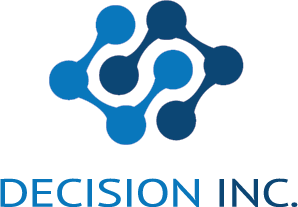BLOG | GENERATIVE AI
Harnessing Frontline Ingenuity in the Era of Generative AI
We sit at a point in time where enterprise innovation utopia may just be in reach! I speak of having innovation come from within the organisation, more specifically from frontline staff. In the rapidly evolving landscape of Generative AI (GenAI), a phenomenon is unfolding that could redefine innovation and efficiency.
Frontline workers, those at the operational forefront of businesses, are increasingly experimenting with GenAI tools like ChatGPT. However, this grassroots innovation, what I call “dualism innovation,” is not being systematically harnessed by the broader enterprise. As a result, while efficiency gains are being made, they fail to scale, lack risk assessment, are not repeatable and the benefits are not necessarily turning up on the Income Statement. Our teams may just be doing their washing more efficiently than they ever have.

1. Balancing Act: Business Leaders and Frontline Staff
The trade-off between business leaders and frontline staff in dualism innovation is intricate. On one hand, frontline workers are the first to encounter operational challenges and, therefore, can be the best innovators. Historically, innovation from these teams has been ‘experienced’ not created and major Enterprise transformation programs invariably run into Change Management and Adoption issues within this critical level of the business. On the other, business leaders are responsible for scaling these innovations while managing risks and ensuring continuity. Pushing these innovations into a business can be challenging and fraught with issues .
I remember being part of a leadership team rolling out a large German software provider solution years ago and being surprised when assumptions on what happens operationally, and the reality were poles apart. The change management battles that ensued were significant and justified as we adapted the solution to serve its purpose – frontline efficiency.
‘Gives’ and ‘Gets’ to Encourage Innovation
For Frontline Staff:
They need autonomy, resources, and recognition at a minimum but there are more contemporary and innovative options to be considered. Additional training investment, preferential mentoring, flexible working, or even the mythical four day week! Their ‘give’ is their on-the-ground insight and willingness to experiment and engagement with the wider organisation to help spread safe best practice.
For Business Leaders:
They provide support and a framework to scale innovations but must not lose the opportunity to engage at a deeper level with staff on what else they can do to help. In return, they get improved processes and potential competitive advantages.
2. Scaling Frontline Innovation: New Approaches Needed
To scale frontline innovation, businesses need to adopt new thinking, and ways of working. Some concepts to consider include:
Creating Safe Experimentation Spaces:
Encouraging a culture where trial and error are valued and protected.
Establishing Forums for Discussion:
Sharing experiences across departments can foster a culture of learning and cross-pollination of ideas.
Building Scaling Processes:
Means of widening innovation impact without increasing ongoing workload
Communicating Innovation Motivations and Themes:
Ensuring frontline staff have a clear understanding of the benefits of innovation for them and the business and how to speak to it as ambassadors of change

3. The Skills Transition Beyond Technical Training
We can be fooled into thinking GenAI is a technology challenge but there are wider skills needed for effective scaling that goes beyond technical know-how. Recent research by Hays highlighted four areas of ongoing development including:
Learning Agility:
The ability to quickly learn and adapt to new technologies.
Understanding GenAI Basics:
Not just how to use it but understanding its implications and limitations.
Soft Skills:
How to be an effective collaborator in a crowded stakeholder space
Broad Digital Skills:
Essential for understanding and navigating the digital landscape
The beauty of GenAI technology is the simplicity of how we interact with it. Ask a question, get an answer. But understanding the question to ask, how it was answered, how to position it within the Enterprise and what next are skills of the future.
4.The Critical Role of Leadership
Leadership in the age of GenAI and dualism innovation must evolve. Leaders need to move to a mindset of autonomy within boundaries and recognise these boundaries are very fluid at present. The change needs to start today and at a minimum include building the following:
Adapt and Trust:
Embrace new technologies and trust their teams’ innovative capabilities.
Feedback Loops:
These loops should encourage high accountability and continuous learning.
Foster a Culture of Innovation:
Where experimentation is encouraged, and failures are seen as learning opportunities.
Conclusion
In conclusion, the untapped potential of dualism innovation in the era of GenAI is immense. How enterprises respond to this challenge will determine their time spent in the ‘Dip of Disillusionment’ and be a competitive advantage. By understanding and addressing the trade-offs between business leaders and frontline staff, creating environments conducive to scaling innovation, focusing on the right skill transitions, and evolving leadership styles, enterprises can harness this grassroots ingenuity. This approach not only drives efficiency and competitive advantage but also fosters a culture of continuous learning and adaptation, which is crucial in the ever-evolving landscape of technology and business.
Read More
Who Should Take the Lead in Responsible AI?
BLOG | GENERATIVE AIWho Should Take the Lead in Responsible AI? The AI arms race is in full swing, but one question remains unanswered: who’s responsible for making sure it doesn’t go off the rails? Should governments set the rules? Should AI labs embed responsible...
“Is the AI ‘bubble’ about to burst or just starting? ”
BLOG | GENERATIVE AI“Is the AI ‘bubble’ aboutto burst or just starting? ”Artificial Intelligence is everywhere. From boardrooms to tech conferences, AI is the shiny new toy that has almost everyone energised. Yet some people are starting to tune out. After all, how...
“A ship is safe in harbour, but that’s not what ships are for.”
BLOG | GENERATIVE AI“A ship is safe in harbour, but that's not what ships are for.”The same is true of your data! Reimagine this quote in the modern world where your data is the ship, and the ocean is the market you want to dominate. AI can be your map of exploration....



